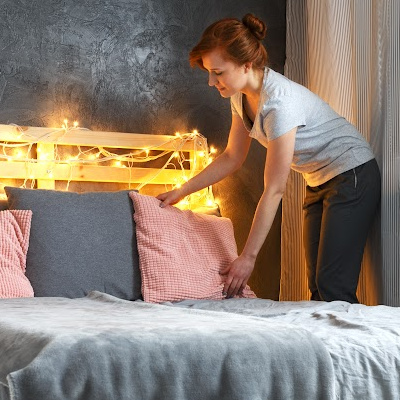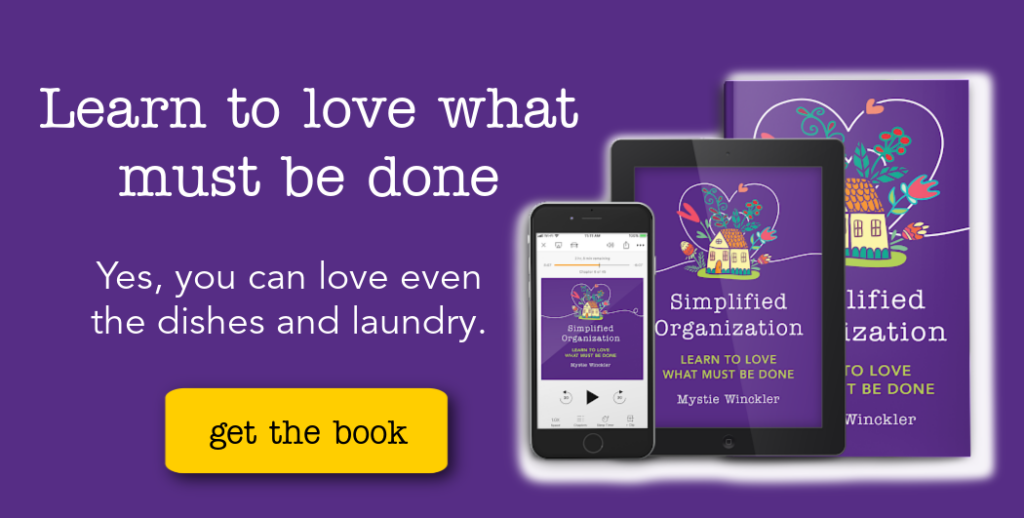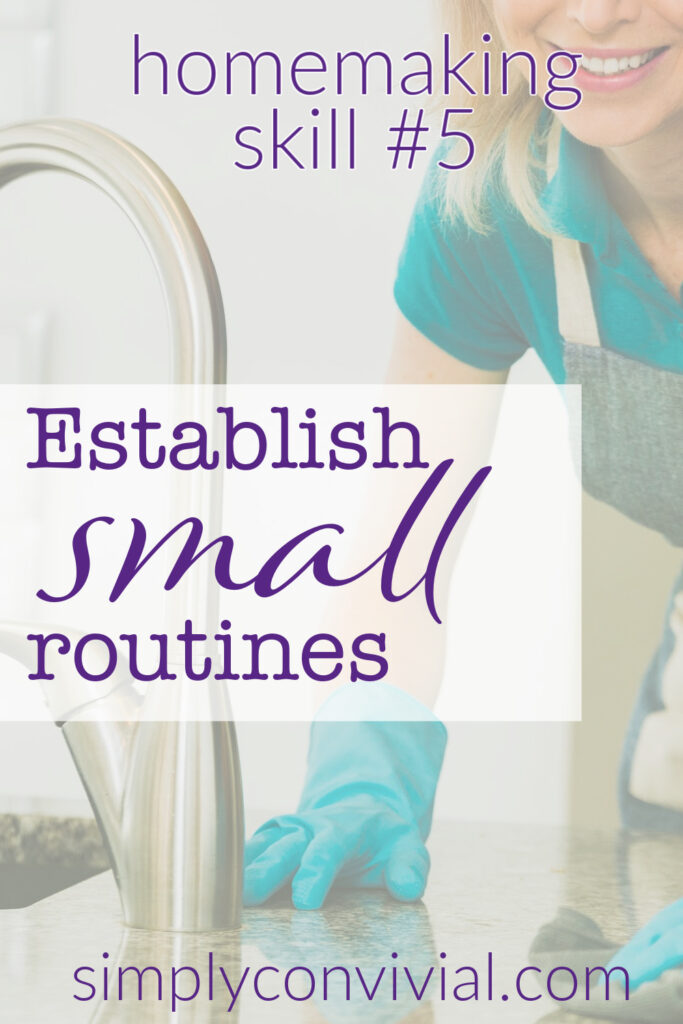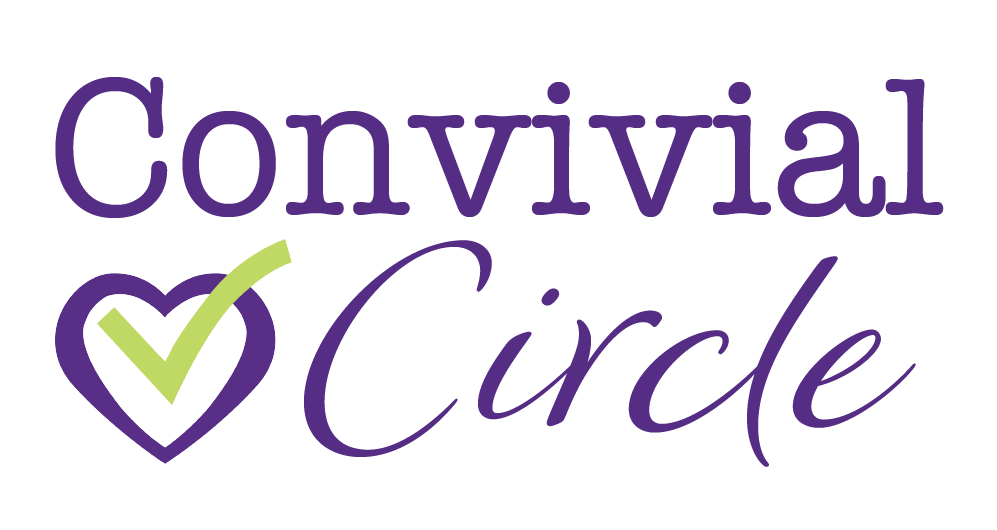We look around our house and things are not as they should be. There’s clutter on every surface, crumbs under every table, and sticky fingerprints on every wall and window.
We know we need to handle the day-to-day use of our home better. But how?
Obviously, routines are the answer.
But routines might not be the solution you are hoping for.
We look around our house and things are not as they should be. There’s clutter on every surface, crumbs under every table, and sticky fingerprints on every wall and window.
We know we need to handle the day-to-day use of our home better. But how?
Obviously, routines are the answer.
But routines might not be the solution you are hoping for.
My new book, Simplified Organization: Learn to Love What Must Be Done, is all about the six skills of homemaking, and half of them are mental-emotional skills for a reason. We need to change our approach, our mindset, about housework before we’ll find joy and satisfaction in it – but joy and satisfaction — and traction — are totally possible, no matter how bad your attitude has been about homemaking up until this point.
Don’t miss the rest of this series:
- “Tell yourself true stories“
- “Stop your inner tantrums“
- “Take baby steps everyday”
- “Invest your time wisely”
Routines aren’t effortless
I’ve written out countless routines on paper. I’ve set them up on calendars. I’ve inputted them into fancy apps. Most of them have been reasonable, but none of them have worked.
Why?
I didn’t work them. With or without a routine, keeping up on the housework boils down to committing our own time and attention.
You can clean on a schedule or you can clean what you see needs to be done, but either way you have to clean.
Routines don’t suddenly make it all easy and effortless. The planned routines are only there to remind you when and where your efforts should be directed.
Cleaning is not something that becomes an autopilot habit, something we just suddenly find ourselves doing on cue without thought or energy required to direct ourselves in our duty.
If that’s what we’re looking for in our routines, it’s no wonder we’ve never yet found a routine that “works.”
Routines are needed
Even though routines are not going to do any of the work on their own, they are still worth working through.
However, usually our planned routines are too elaborate and thorough. Our goal is to design the conditions under which everything is always clean all the time. That doesn’t work, so we give up on routines.
Instead, we should think of routines as our regularly taken baby steps. Doing them is not the complete system, not the all-in-one solution for having a totally clean house, but rather the bare minimum maintenance that keeps things running.
The three routines you need
After years of not only trying many failed routine projects, but also finally finding my groove – and needing to remake it regularly – and additionally helping hundreds of women find their own groove, I’ve found that there are three routines that are the most important for all housewives, no matter their situation: a morning routine, an evening routine, and an EHAP routine.
Although we might have a personal morning routine that includes our Bible reading and maybe even exercise, what I mean in this list of three is a set of routines for housework.
What needs to be done in each set of routines will be different for every person, but if we each identify 15 minutes of specifically directed effort to do each morning, afternoon, and evening, we’ll find that the bare minimum maintenance builds overall momentum far more reliably than any perfectly constructed total housework system.
So ask yourself what has to be done daily in your home. Pare it down to only what will fit into 15 minutes in the morning and 15 minutes in the evening. You’ll have more cleaning to do, but the limitation of fifteen minutes forces you to give up the ideal hopes and dreams and actually discover what matters most to get done.
When you’re committed to the bare minimum essentials, not only are they simpler to get done because you can fit in 15 minutes on the craziest of days, but you also are convinced each of those tasks matter. It’s not fluff. It’s not a pipe dream plan. Those fifteen minutes will make a significant difference.
On top of the 15 minute morning and evening routine, you’ll want an afternoon EHAP routine if you have kids at home most of the day. EHAP stands for Everything Has a Place – and the implication is that things need to return to their places. It’s a fun name for tidying up. Everyone can pitch in and make a big difference in a short time by working together – even if they’re all little.
Explore more in these articles:
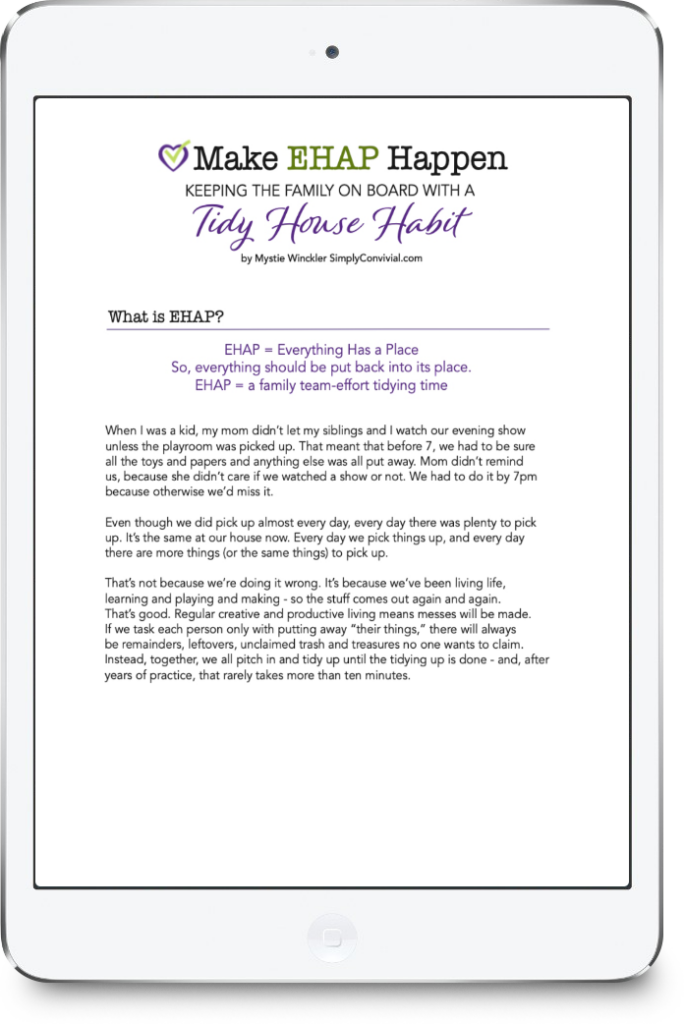
Want a Tidier House?
- Get clear where and when your family needs to tidy up.
- Bring the kids on board to take responsibility for tidying more than their own stuff.
- Learn the three steps to make the habit stick for the long haul.
Grow your homemaking skills
We want to be on top of our duties at home, but even the best routines will not mean that the house is clean and photo-shoot worthy all the time. Instead of creating a visual ideal we’re striving for, we should simply be willing to do the work in front of us in the time we have, whether or not that gets us the instant end result we want.
Tomorrow I’ll have the final step for becoming a more skillful homemaker!
Dig deeper by getting my book, Simplified Organization: Learn to Love What Must Be Done. It’s available in paperback, on kindle, and via Audible (yes, read by me).
- Get gospel-focused advice and encouragement.
- Level up your plans and progress, one step at a time.
- Find accountability with likeminded women without any social media drama.
- Experience the homemaking mentoring you’ve always wanted.
- Learn to love being a homemaker!

